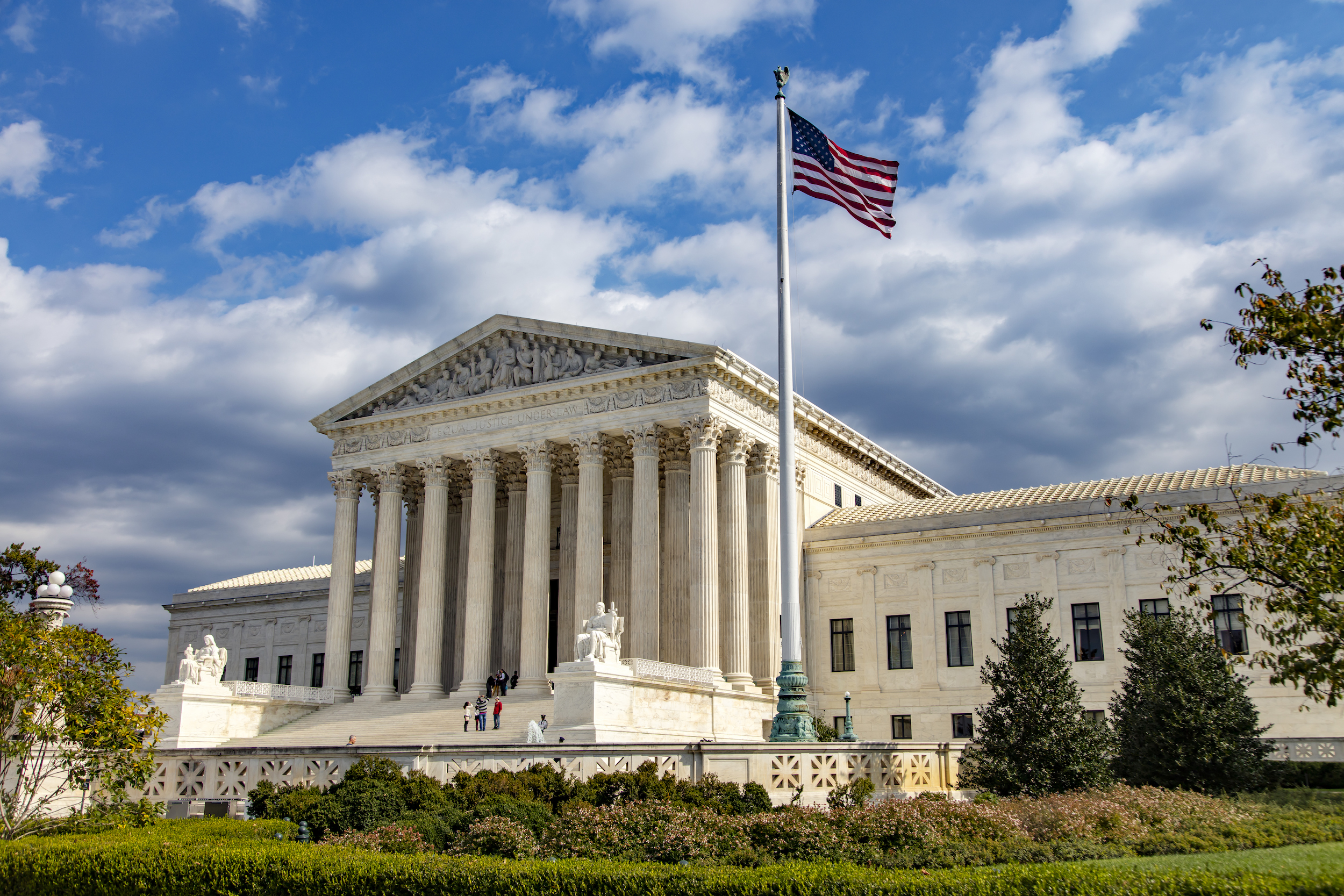D.C. Reacts to Supremes Decision to Hear Broadcast Dereg Case
Issue has been in FCC/Third Circuit loop for years

The smarter way to stay on top of broadcasting and cable industry. Sign up below
You are now subscribed
Your newsletter sign-up was successful
The Supreme Court's decision to hear the FCC/broadcaster appeal of the Third Circuit's most recent smackdown of the FCC's broadcast dereg efforts drew a crowd Friday (Oct. 2).
That may be because the FCC for almost two decades has been responding to remands from the Circuit as the commission under Republican chairmen tried to eliminate the newspaper-broadcast crossownership rule and other local station ownership restrictions but this is the first time the Supremes will get involved.
“I’m elated that the U.S. Supreme Court has granted cert in FCC v. Prometheus Radio Project and will finally review the FCC’s broken and outdated media ownership rules," said FCC Commissioner Michael O'Rielly, who has been instrumental in some of the broadcast deregulation that has been achieved, particularly when it coms to KidVid.
Related: Third Circuit Won't Hear Appeal of Dereg Smackdown
"Our existing 1970’s-era regulations don’t come close to matching up with today’s vastly competitive media marketplace or the law and must be jettisoned," said O'Rielly, whose vote was key in FCC approval of the media ownership dereg decision the Supremes will review. "Failure to do so further penalizes U.S. broadcasters and the American public," said O'Rielly. "While I hope the court ultimately agrees with my position, it is most important to receive a definitive outcome so all parties can move forward. The U.S. Court of Appeals for the Third Circuit has bungled this matter long enough—to the detriment of everyone.”
"Of course, we are disappointed at this additional delay," said Benton Institute Senior Counselor Andrew Jay Schwartzman. "But we are confident the court will see that the FCC has failed to obey its mandate to promote diversity in media voices."
“The Third Circuit rejected the FCC’s media ownership rule changes time and time again because each time the FCC ignored the Third Circuit’s insistence to provide evidence supporting those changes," said Michael Copps, special adviser to Common Cause and a former FCC commissioner and chairman who opposed broadcast deregulation. "The FCC has a statutory mandate to examine the impact that changing its media ownership rules would have on ownership diversity. But as the Third Circuit most recently found, the FCC used flawed data and woefully insubstantial analysis that failed to consider how changing its rules would impact ownership diversity. We know that the number of broadcast stations women and people of color own is abysmally low as media conglomerates continue to consolidate. Our democracy suffers when just a few entities own the majority of our media, and the FCC’s media ownership rules are intended to prevent that from happening."
The smarter way to stay on top of broadcasting and cable industry. Sign up below
"The Court's decision to hear the FCC's media ownership rules is long overdue," said Adonis Hoffman, CEO of The Advisory Council and a former top FCC staffer. "I hope the argument for the relaxation of restrictions will carry the day. Broadcasters deserve the opportunity to develop the scale to compete with Big Tech and private equity media owners who do not have the same limitations on media distribution."
"The FCC's media ownership limits hark back more than 40 years to a reality long ago upended by marketplace forces. Section 202(h) of the 1996 Act requires the Commission every four years to consider whether its rules 'are necessary in the public interest as a result of competition," said Free State Foundation senior fellow Andrew Long. "Over the nearly two decades during which a divided Third Circuit repeatedly has blocked agency efforts to relevel the regulatory playing field, we have witnessed numerous examples of new entrants disrupting the media landscape – and, in the process, chipping away at the relevance of traditional outlets. But in terms of game-changing competitive impact, one need only consider the Internet. Facebook was created in 2004. YouTube in 2005. Twitter in 2006. Over half of U.S. adults today obtain at least some of their news and information from social media, and more identify it as their primary source of political news than either local television stations or newspapers. I therefore welcome the announcement that the Supreme Court will hear the FCC's appeal."
Contributing editor John Eggerton has been an editor and/or writer on media regulation, legislation and policy for over four decades, including covering the FCC, FTC, Congress, the major media trade associations, and the federal courts. In addition to Multichannel News and Broadcasting + Cable, his work has appeared in Radio World, TV Technology, TV Fax, This Week in Consumer Electronics, Variety and the Encyclopedia Britannica.

